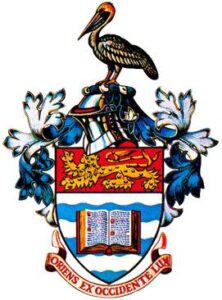The University of the West Indies (The UWI) serves the educational needs of 17 English-speaking countries and territories in the Caribbean. The regional headquarters is the Mona Campus, Jamaica and the other campuses include St. Augustine (Trinidad and Tobago) Cave Hill (Barbados), the Five Islands Campus (Antigua and Barbuda) and the Open Campus.
The University’s mission is to advance learning, create knowledge and foster innovation for the positive transformation of the Caribbean and the wider world. As Small Island Developing States coastal management is a major priority since it is pivotal to the socio-economic transformation and development of the Caribbean’s population. The UWI’s programmes reflect its mission and priorities.
The Future Earth Regional Engagement Partner is based at The University of the West Indies, St. Augustine Campus, Trinidad and Tobago in the Department of Geomatics Engineering and Land Management, Faculty of Engineering. The host department offers a M.Sc. Urban and Regional Planning, which inter alia, addresses Future Earth Coasts hotspot themes such as Planning in the Coastal Zone and Small Island Developing States Natural Resources Management. A M.Sc. and Graduate Diploma in Coastal Engineering and Management are offered in the Department of Civil and Environmental Engineering.
These programmes actively seek to promote interdisciplinary research and inclusivity among communities through stakeholder engagement. Research collaboration with partners such as the Institute of Marine Affairs, the Town and Country Planning Division, the Environmental Management Authority and community-based organisations, which promote sustainable coastal management, has had the benefit of co-designed research and project implementation.
The REP sees as a primary mandate and mission, the necessity to promote awareness and knowledge of the critical anthropogenic drivers that impact small island developing states (SIDS). Climate change and disaster risks are considered issues that are undermining the efforts of SIDS to attain sustainable development. The REP proposes to work toward finding innovative ways using a science-policy-practice interface framework to abate these complex challenges in the face of limited financial resources. A long-term goal is to establish a network of young professionals in small islands who can develop new thinking on solving persistent coastal management complexities and who can actively champion inclusive, sustainable, safe and resilient human settlements.


